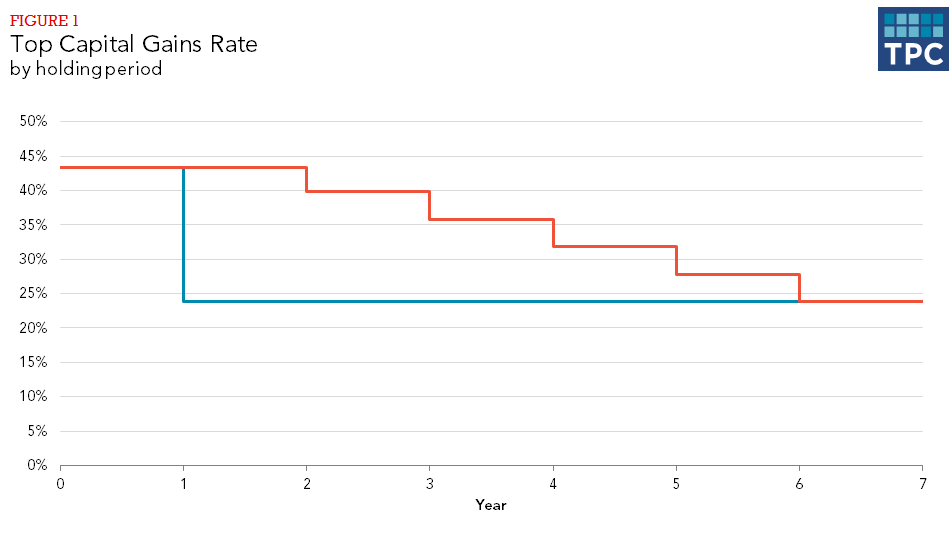The voices of Tax Policy Center's researchers and staff

If you'd like to take a break from the made-for-TV thrills of the Democratic convention, TPC has prepared a series of bite-sized explanations of Hillary Clinton's tax proposals. We'll be running them daily while the Democratic Party is gathering in Philadelphia. Last week, while the Republicans were in Cleveland, we published four posts on Donald Trump's tax plan.
In an effort to encourage investors and businesses to think long-term, Hillary Clinton has proposed changing how we tax capital gains.

Currently, profits on the sale of an asset held for one year or less are considered short-term and are taxed at ordinary income tax rates up to a maximum of 43.4 percent (the 39.6 percent statutory rate plus the 3.8 percent net investment income surtax). Gains on an asset held longer than one year are considered long-term and are taxed at top rate of 23.8 percent (a preferential 20 percent rate plus the surtax). Clinton proposes to double the short-term holding period to two years, taxing any gains at ordinary rates, and then to reduce the tax rate roughly 4 percentage points for each additional year an investment is held. After six years, gains would be taxed at the current 23.8 percent top rate on long-term gains.
The tax change is not intended to add revenue (it would only contribute $84 billion of Clinton’s $1 trillion in new taxes over 10 years) but rather to change behavior. The hope is that the higher rates will give investors an incentive to hold assets longer, and that firms would use that capital to grow and create new jobs. However, there are reasons to doubt there is a problem to solve (money pulled out of one investment can create jobs when it’s reinvested elsewhere) and that this is the right solution (most capital is not subject to capital gains taxation and investors weigh many factors more heavily than taxes).
Posts and comments are solely the opinion of the author and not that of the Tax Policy Center, Urban Institute, or Brookings Institution.
Share this page
Democratic presidential candidate Hillary Clinton reacts to supporters during a presidential primary election night rally, Tuesday, June 7, 2016, in New York. Clinton secured the 2,383 delegates she needed for the nomination on the eve of Tuesday's voting but wanted to wait until most of the voting was complete Tuesday night before fully reveling in becoming the first woman nominated by a major U.S. political party. (AP Photo/Julie Jacobson)
